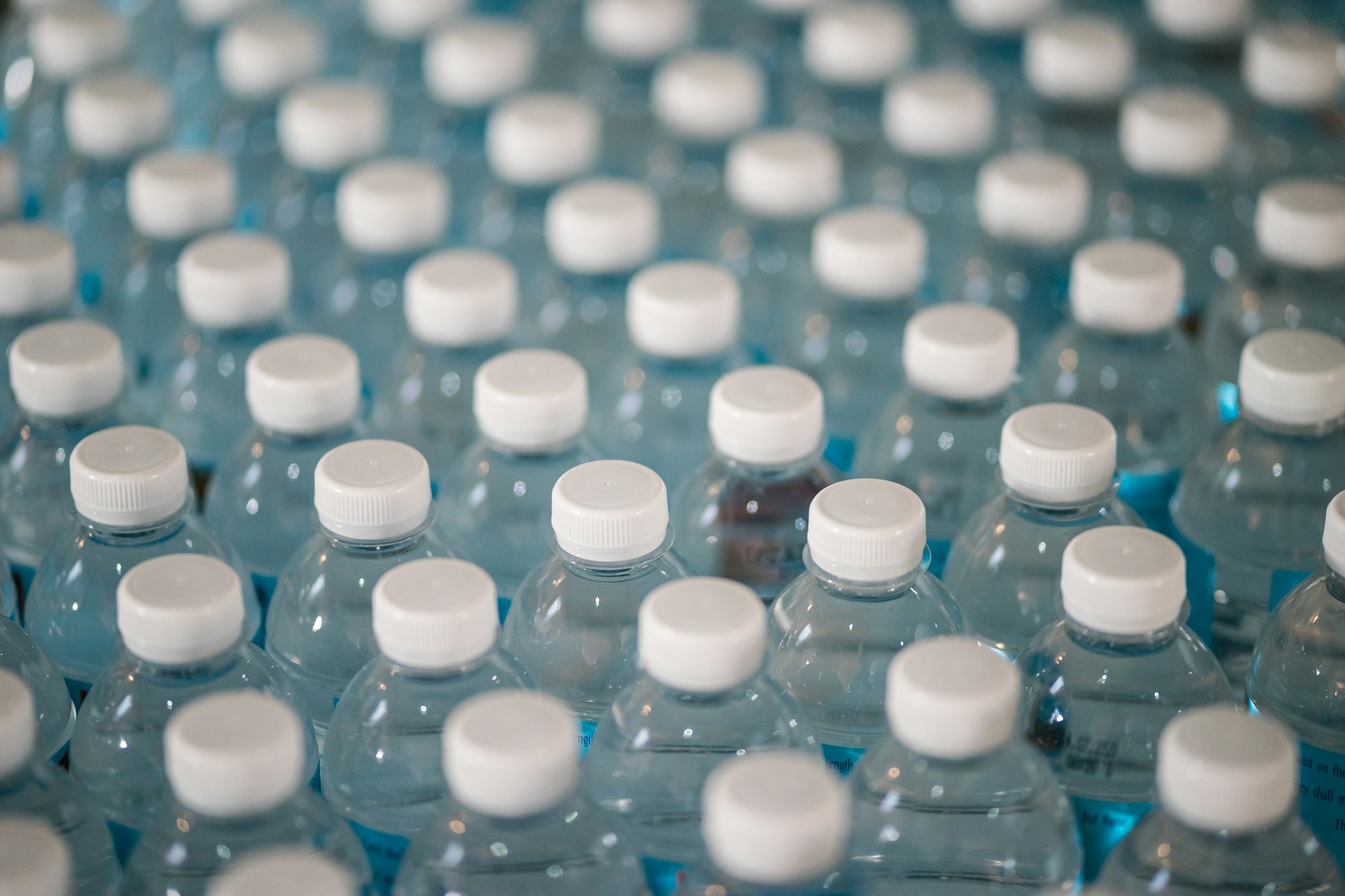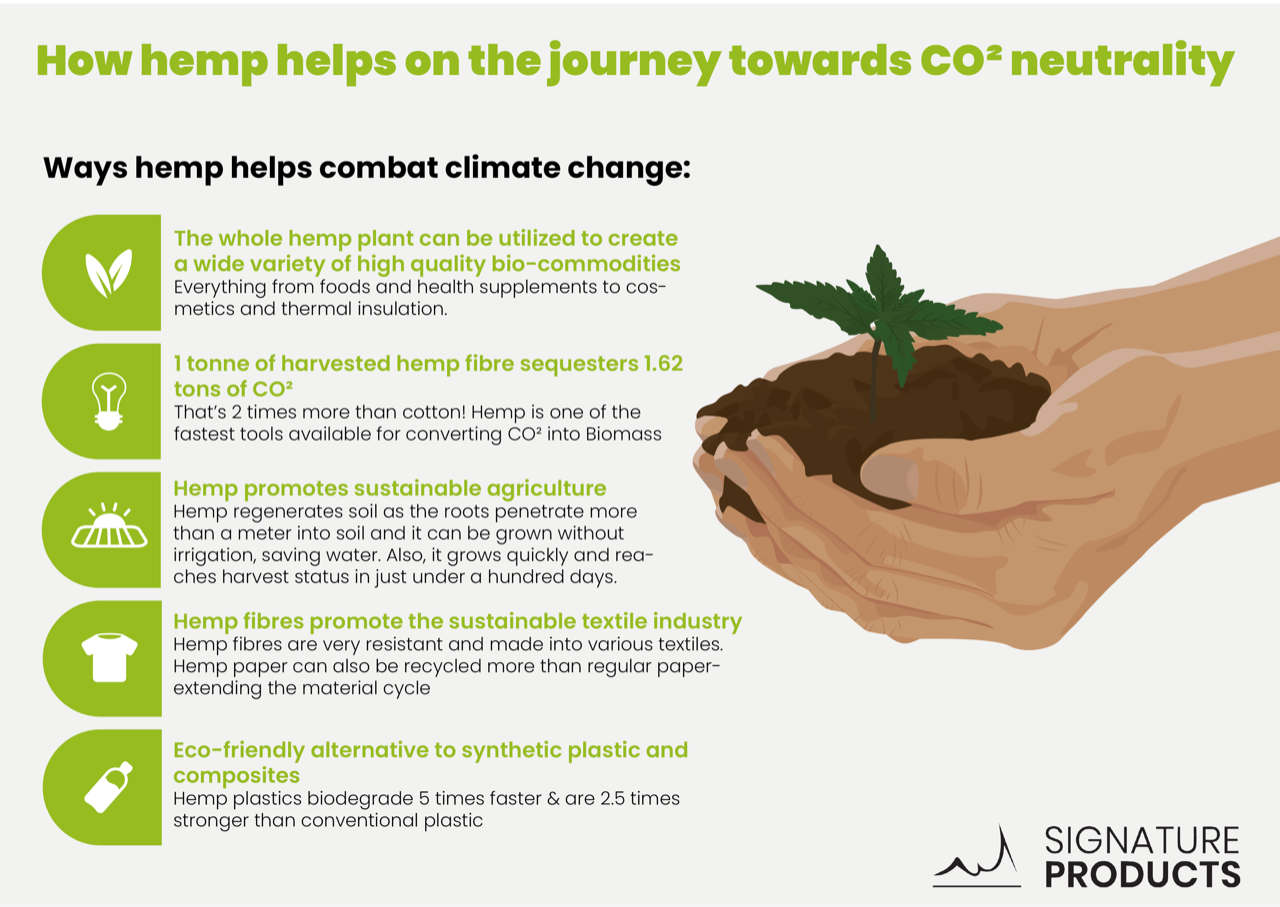Could Hemp replace Plastic? The Potential of Hemp Bioplastics
The world needs an alternative to plastic. As practical as plastic is, the material is catastrophic for the environment. Could hemp plastic be considered as an option to reduce the harm caused by regular plastic?

Researchers estimate that more than 8.3 billion tons of plastic have been produced since the early 1950s. More than half of it ended up either in landfills or in the natural environment. Most plastics are made from chemicals derived from oil, natural gas and coal, all of which are non-renewable resources. It takes anywhere from 10 to 1,000 years for a piece of plastic to decompose in a landfill. When burned, toxic gases such as mercury and dioxins are released.

Hemp plastic, on the other hand, is fully biodegradable and can decompose in as little as 3-6 months in the right environment. For comparison: A conventional plastic water bottle can take up to 500 years to decompose. Furthermore, hemp grown on toxic soil absorbs the toxins but does not release any toxins into the air itself. Another benefit of hemp plastic is that it can be recycled as many times as is required.

There are several ways to make hemp-based plastic. For example, it is possible to use hemp cellulose to make plastics such as celluloid, cellophane, and rayon. Already a popular bioplastic, cellulose is an essential component of the cell walls of many plant species of algae. The high cellulose content of hemp (65-70%) makes it an ideal material for the production of plastics. For comparison: wood contains about 40%, flax 65-75% and cotton up to 90%.
In order to produce the pure cellulose needed for polymerized hemp plastic, all non-cellulose material must first be removed. Unfortunately, this form of production is a long and complex process that consumes a lot of energy. For this reason, pure bioplastics are also more expensive to produce than their petroleum-based alternatives. Currently, the price for the production of hemp-based plastic is therefore significantly higher as well, estimated to be twice as much, than the price for the petroleum-based plastic alternative. For this reason, polymers are not yet directly derived from hemp on a commercial scale.

Most, if not all, hemp plastics on the market today are biocomposites - a blend of hemp fibers with other plastic compounds. Hemp fibers are used to reinforce an existing polymer and create a fiber-reinforced biocomposite. Currently, most of the hemp plastic on the market contains between as little as 5% and a maximum of up to 30% hemp biomaterial. Therefore, many hemp plastic products advertised as “sustainable” are actually just conventional plastics mixed with hemp biocomposites. These materials cannot be recycled, nor do they offer any real sustainability benefits over traditional plastic products.

Nowadays, there are already a few brands that specialize in making products from hemp plastic. In 2019, Swedish biocomposite developer Trifilon won the European Industrial Hemp Association (EIHA) Product of the Year award for its BioLite product, which consists of 30% hemp fibers and offers an even lighter alternative to carbon fibers. Currently, various brands produce ecological packaging, furniture, surfboards, food wrap, plastic pens, CD cases, musical instruments and insoles for 3D printers using hemp bioplastic compounds. In the automotive industry, plastic made from natural hemp fiber has been a popular fiberglass replacement for certain auto parts for many years. Big companies such as BMW and Mercedes-Benz frequently use it for the production of door panels and rear shelves, among other things, for certain vehicle series.
So, could hemp replace plastic entirely? The short answer is: No. Currently, the necessary production facilities and suitable recycling facilities specialized for hemp plastics are lacking to take the plunge. This means that it may take many years from now before there is enough production capacity to circulate pure hemp plastic on a global scale. Nevertheless, hemp plastic is definitely a very promising product that could increasingly come into focus in the future due to its robustness, durability, and versatility.

